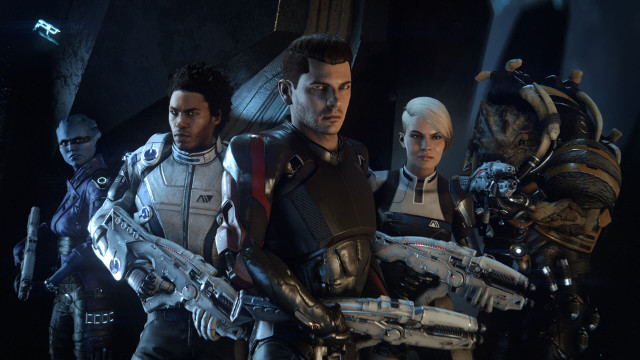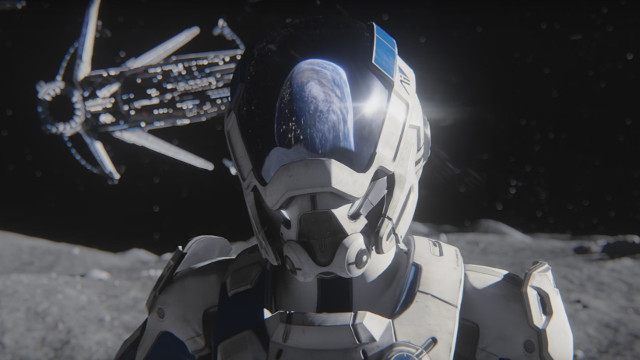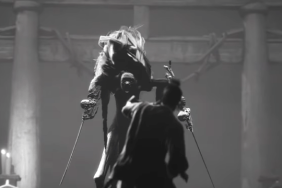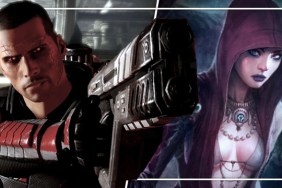Mass Effect: Andromeda has been dealt a bad hand this week. Following years of hype and considerable marketing, the release has arrived to criticism that goes far beyond what any BioWare game has experienced before. While in many cases its bugs, odd animations, and inconsistent story delivery can be overlooked, this is Mass Effect we're talking about; it isn't judged by the same standards as your average game, and because of this all its flaws have been exposed for the world to see.
No matter how you look at it, the consensus is that it's the worst Mass Effect game. While that might come off as a mean-spirited and pessimistic conclusion, it isn't quite as bad as it might sound given that the prior three games released to incredible reception. Nonetheless, many fans are disappointed, and EA is having to handle a social media storm of galactic proportions.
This divisive reception has raised valid questions about what went wrong during Mass Effect: Andromeda's development. Some gamers have been quick to point out that its development team at BioWare Montreal isn't of the same composition as what delivered prior Mass Effect games. While true, that doesn't tell the whole story.
There is very little to go by currently given the secrecy of development guarded by NDAs. However, a self-described former VFW Artist at BioWare Montreal has posted a review of the company on Glassdoor, and it's an insightful shocker.

The review starts off by mentioning a small number of positives of working on the project, including the studio's location and its surplus of talent. The niceties end there. The "cons" are as follows:
- Bioware Edmonton and Montreal symbiosis is broken. Lots of conflicts and bro culture.
- Lost over 13 leads (game design, art, audio, prog, senior core leads, etc) in 5 years at Bioware Montreal on Mass Effect. Edmonton lost only 3. It is clear that Edmonton has the bigger part of the stick when it comes to purge Leads and Producers who are not aligned with their leadership style.
- Putting people on performance improvement program (PIP Program) is the new tactics to get rid of people. Once again more than 10 people in Montreal got slammed with this bureaucratic uppercut to let go people that are not bending to Edmonton leadership styles in the last revision cycle. This approach is used by the Montreal Leadership to purge the mess from the lack of vision cause by upper management in the last 4 years (throwing people under the bus to protect bad core management).
- Renaming crunch to Finaling mode. Which means company pays for your lunch but you have only 30 minutes to eat and then getting back on the keyboard. Was lasting for over 2 months and was a real catastrophy.
- Retaliation and harassment is sadly a reality. If you talk and ask questions you will be tag as a trouble maker and end up in a bad position.
- HR won't help you out. They will deny the current harassment from Monreal management by ignoring and not documenting the facts. In other words if you leave don't talk. Just let it go…
- Many benefits got cut due to too much time extension to get the game done.
This might read as a "fake" review, but it should be noted that it was posted in July of 2016, well before any controversy arose. Its complaints are also highly probable in the current landscape of gaming development.
I personally know a few people who work in game development, one of whom worked on Metal Gear Solid V: The Phantom Pain during its tumultuous Konami self-implosion. The two I spoke to about this were quick to point out that several of the points are "norms" for the gaming industry, particularly in the case of crunch time and controlling upper management.
Game development isn't the glorious process that behind the scenes footage and gaming conventions make it out to be. It's time consuming, mentally draining, and to some people completely exhausting. That said, what's described above is a particularly bad case.
The mention of the loss of 13 leads is the biggest item on the list. If true, this indicates an egregious hiring process that either put unqualified people in leadership positions, or didn't give them enough of a chance to hit their stride. If true, it offers a clue into the inefficiency of Mass Effect: Andromeda's five-year development cycle.
With all that said, our reviewer Aron Garst did find many redeeming qualities while playing through Mass Effect: Andromeda. Maybe you will, too. You can check out his full written review here.

Check Out More Mass Effect: Andromeda Coverage:







